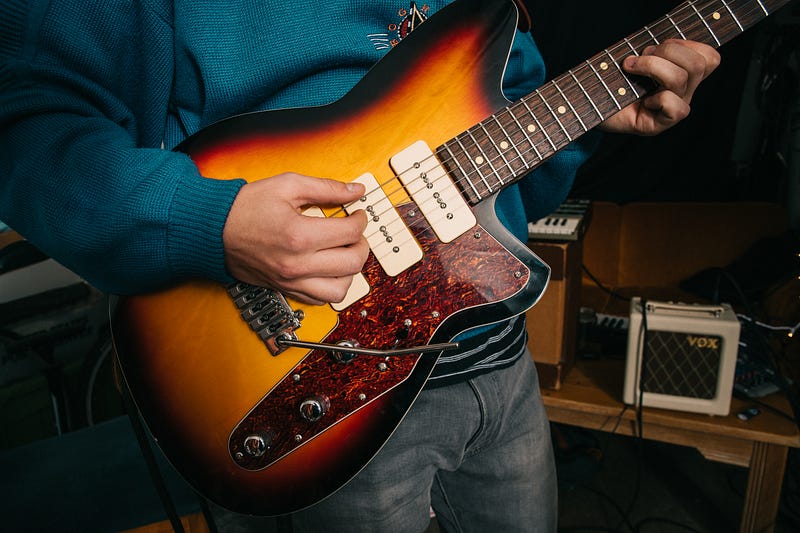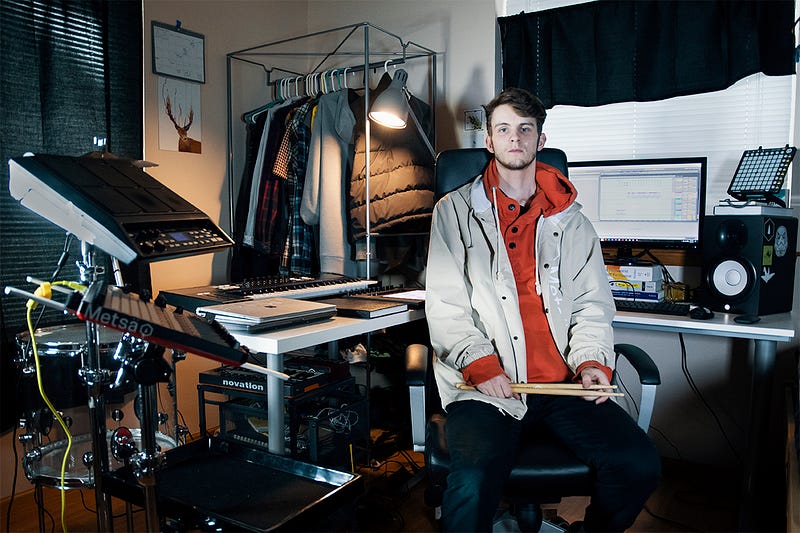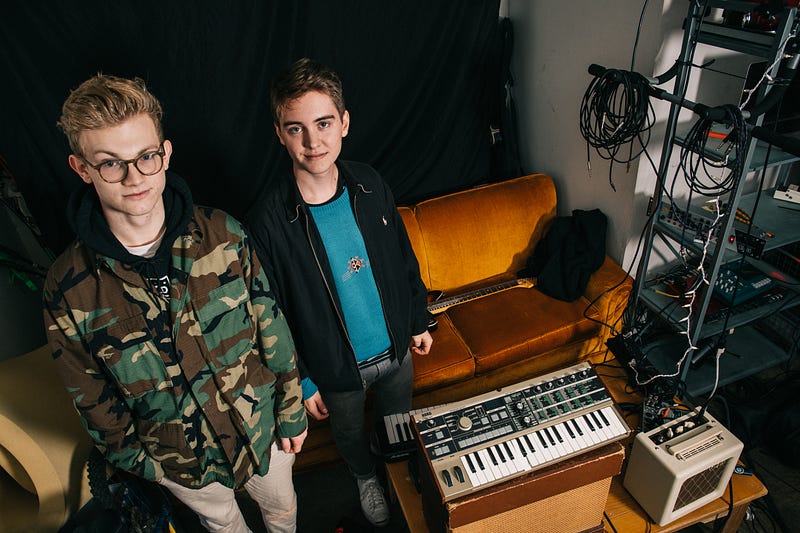Couch Surfing to Crowd Surfing
What it means and what it takes to make a name for yourself in music
Story by LANGSTON THOMAS || Photos by OCTOBER YATES

In a pop culture society that links self-worth to the zeros in our bank account and number of plays on SoundCloud, trying to make a name in the music industry can be incredibly daunting.
With greatest hits giving way to top 100 singles, rock stars to DJs and record sales to followers, how can independent artists compete?
It seems that the biggest thing young artists are concerned with nowadays is “making it.” An obscure accomplishment at best, making it is seen as being the pinnacle of artistic success, without even knowing what “it” is.
According to local Bellingham artists arbour, fantompower, Fluencie and metsä, “it” doesn’t really matter. These four Bellingham based electronic music producers find themselves working toward the same goal.
“If I could make enough to pay my rent and buy groceries and stuff just from making music like I always do, that would be a dream come true,” says Hans Watkins, the human behind the ambient, soundtrack-to-life music project that is arbour.
Countless young artists, including fantompower and metsä, have come to the conclusion that making it means achieving self-sufficiency solely through their music.
Building a music project from the ground up is no small feat, but Justus Yearous has found, “a lot of people get caught up in the fame side of things.”
Yearous has come a long way from where he started. Having evolved from a primarily folk singer and songwriter background, blending his guitar-based knowledge and hip-hop influences into his lo-fi indie music project, fantompower, has helped him figure out where he wants to go in music.
Having recently graduated from Western with a classical guitar-focused bachelor’s degree in music, Yearous believes that success in music is subjective.
“There’s a lot of uncertainty with young artists. People are just like, ‘I have no idea how to do this,’” Yearous says. “The main thing is really being aware of what you’re investing and what you’re trying to get back from it because a lot of people don’t even know what they’re trying to do in the first place.”
Watkins also sees an error in the ways that young artists attempt to hit the ground running, but understands the stereotype surrounding the modern music industry.
“People have it in their head that musicians get rich and famous,” Watkins says. “It’s easy to get too into the marketing and not actually have that good of stuff to market in the first place.”
Pitching demos to labels, cold contacting booking agents, paying a nameless entity to magically make music appear on various streaming websites — these don’t even equate to half of the tasks independent artists must accomplish in order to navigate the maze called the music industry.
Overnight success stories exist, but cases such as Rich Chigga, Martin Garrix and Justin Bieber are rare. While planning a career around going viral isn’t practical, the internet continues to be highly beneficial for many young artists.
In the case of Max Prendergast, better known as metsä, reddit was a suitable platform for his growth. He started his music career by taking criticism and gaining production experience on the subreddit futurebeatproducers. It only took Prendergast a few years after learning to produce to dial in his atmospheric, synth-heavy electronic sound and become an opening act for heavyweight producers Louis Futon, Manatee Commune, Big Wild, Manila Killa, Robotaki and more.

“I had no idea what I was getting myself into when I started this,” Prendergast says.
As someone who has grown by creating organic online relationships in the music industry, Prendergast approaches networking opportunities as lax as possible. His personable approach to music has helped Prendergast gain numerous friends and exposure including reposts and shows with fellow up-and-coming artists.
“I flew to Belgium this year to meet someone who I met over the internet. We’d been talking about music for two years,” Prendergast says. “Having that connection through music and art or whatever you’re doing, it’s really strong.”
Western engineering student Alex Olson has also only recently begun to reach mass audiences with his vibrant electronic-pop project Fluencie, but he’s already decided to take a step back from mainstream marketing and networking in order to re-evaluate his long term game plan.
“You can reach out, but unless you have some serious value to provide there’s not a lot you can do to differentiate yourself from the millions of other emails that are flying in,” Olson says. “I used to focus outward a lot and it started to feel kind of tedious and a little bit egotistical.”
Olson recently returned to self-releasing his music as opposed to selling to labels as he has done in the past. Now, Olson simply talks to the people around Bellingham, telling them about his upcoming shows and growing a more immediate and intimate fan base.
As he’s recently noticed in comparing the success of a few of his singles, external promotion hasn’t been more beneficial than his own personal efforts. “I released ‘Don’t Let Me Go’ on Faded Records and they took half of the royalties,” Olson says. “That song got 300,000 plays or whatever but ‘Preoccupied’ — I didn’t do any promo, I own all the rights to that — that got 250,000 plays.”
While he still purchases ads on social media and promotes his music project himself when possible, he says he’s just experimenting at the moment, attempting to get a feel for what the media marketplace is like. “I don’t know what I’m doing, I’m just trying my best,” Olson says.

Fluencie, fantompower, arbour and metsä have already reached an audience and put in the time and effort where networking and promotion are concerned. These local artists are now focusing on longevity; differentiating themselves from the countless other producers.
“Unless you have some serious value to provide, there’s not a lot you can do to differentiate yourself,” Olson says.
Many young artists create music similar to whatever is popular at the moment. While this may provide some with instant exposure, it may limit the potential for a music project to grow.
From years of creating and consuming music from all over the electronic spectrum, Watkins has noticed this recurring theme of producers almost too closely following the work of trend-setters.
“There aren’t enough people making the kind of music they want to make,” he says.
Watkins and Yearous have already figured out a way to separate themselves from other artists. They’ve created Club Mage, which Yearous describes as a “band, residence, brand, video game collective, Smash Bros. collective, it’s anything you want it to be.”
Watkins and Yearous, among countless other young artists, have found that collectives are a great way to join forces and gain exposure.
“Having this non-distinct collective is kind of the way of the future,” Watkins says. “You see a lot of groups that are very multifaceted.”
Club Mage acts as a way for Watkins and Yearous to collaborate with others and express their ideas within a group dynamic, but both arbour and fantompower also embody this approach when it comes to their solo projects. The two artists are unique in that their production, mixing, artwork, photography and design are created by themselves for themselves. Yearous believes pushing personal boundaries is important.

“Sucking at something is the first step to being good at something,” Yearous says. “The people that I think are most successful right now in music are the people that are very diversified in the content they’re putting out.”
Fluencie, arbour, fantompower and metsä ultimately make music not because they want to make it, but because they love it.
“I don’t do it for the fame or money, I do it because I love making music,” Prendergast says. “I’m thankful to be paid when I play shows, but I just love doing it.”
Whether it started as a hobby, passion, or something to pass the time, it is something more for these four: a way of life.
